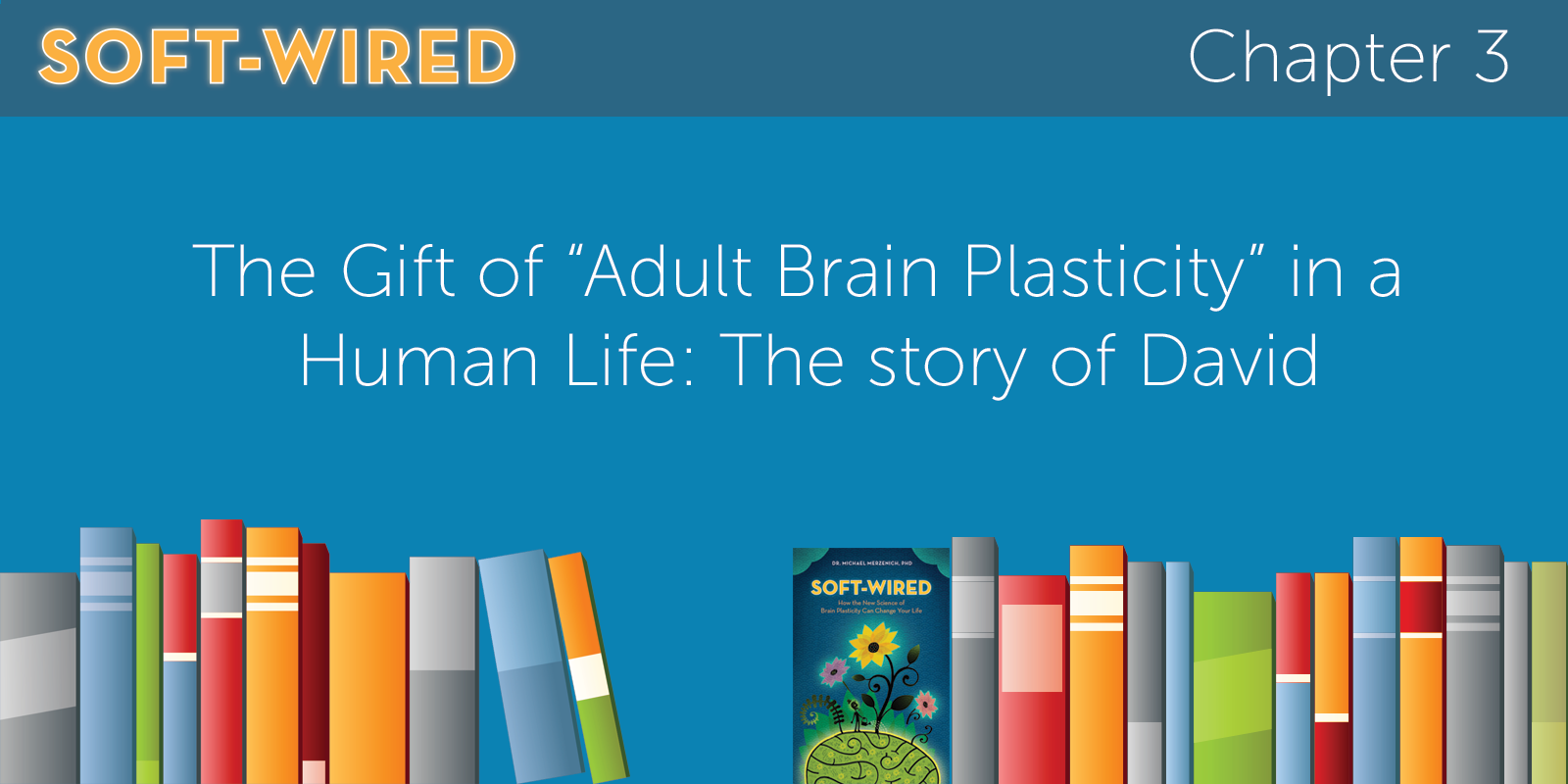The Gift of “Adult Brain Plasticity” in a Human Life: The story of David
Significant improvements in speech reception abilities like those recorded in David have been achieved several million times in our trained language-impaired child populations. Studies show that recovery of speech reception abilities (which was the major target of the “Fast ForWord” training provided for David) are paralleled by improvements in speech production, as revealed by after- vs before-training assessments using standard language batteries like the Test of Language Development (TOLD) or the Clinical Evaluation of Language Function (CELF). For example, see Merzenich M, et al. (1998) Some neurological principles relevant to the origins of—and the cortical plasticity-based remediation of—language learning impairments. In: Neuroplasticity: Building a Bridge from the Laboratory to the Clinic. Grafman J, Cristen Y, eds., Springer-Verlag, New York.
Ongoing studies conducted in large child populations have shown that if you train a child in accurate listening, speech production benefits are almost as great and as extensive as are speech reception benefits—in both cases moving trained children roughly a standard deviation across the distribution in their abilities, in a higher-performing direction. Studies conducted at the Magnetoencephalographic (MEG) Imaging Center at UCSF (led by Dr. Srikantan Nagarajan) have shown the bases for this speech production improvement, showing that speech reception training strongly increases the power and fidelity of an integrated reception-to-production “system” in trained, impaired individuals.
At the same time, the recovery of speech production and aural language abilities from a status of profound mutism to the post-training speech production level achieved by David has been documented in only a small number of profoundly non-expressive (mute) children. We are working to understand how we might more consistently improve verbal abilities in autistic spectrum disorder (ASD)—and in other non-autistic children who, like David, are severely expressively impaired. General problems in verbal and gestural expression (and in facilely moving from reception to the control of mental or physical response or action) is one of the major problems in moderate-severe ASD. We’ll post progress on this research initiative at http://www.onthebrain.com (which we will link to from this site) as this work progresses.






